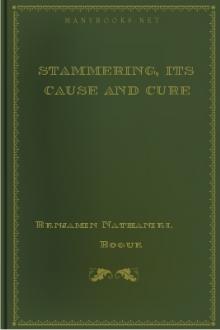The Jetsam - Lara Biyuts (best adventure books to read .TXT) 📗

- Author: Lara Biyuts
Book online «The Jetsam - Lara Biyuts (best adventure books to read .TXT) 📗». Author Lara Biyuts
Antinous’ posthumous image as a mystic-minded person, as a person inclined to suicide, living for the benefit of the Emperor or for executing the will of the gods, belongs to Hadrian, his patron, ageing lover and first admirer, the man who deified him. “He fell into the Nile” -- that was all the man could inscribe, that was all a grief-stricken man could inscribe -- either grief-stricken or scared of enticing suspicion. “He fell into the Nile” with these words, Hadrian gave himself away completely, is how I rationalize the death, considering the next interpretation, one of murder. An ill unbalanced man, sophisticated but mighty, powerful enough to order the murder of Antinous; such a person was Hadrian. Except for the account that Hadrian “wept for him like a woman”, I do not sense a sneer or anything mocking in these words, they read as real tragedy.
On the other hand, these words could be left for us at Hadrian’s behest; even though his bemoaning took place, it might mean a tardy repentance of the murder. But Hadrian’s words appear like those of a grief-stricken man; he seems unable to write anything more. Either unable or did not dare? Was Hadrian a murderer or a man who knew who was the murderer -- in the light of the love story, this possibility is blasphemous, yet not outrageous. Indeed, there would be nothing obscure in the supposition that Hadrian could kill Antinous, if it were not for the Emperor’s sequent behaviour. In the boy’s lifetime, Hadrian worshipped him -- worshipping if not the boy himself then the boy’s images, for the images were always divinely beautiful: “What Ganymede was more fair?” The boy could serve him as a lovely living toy, whom Hadrian dressed in silks, gold, flowers and jewellery -- or undressed as he pleased. But the boy’s image, as though automatically becoming sacred and cultivated as early as in his own lifetime in virtue of Hadrian’s views and tastes of a Greek admirer. And then, after the boy’s death Hadrian’s behaviour looked defiant. He not only displayed his grief bidding defiance to Rome, but he deified his beloved. This does not appear to be a cover up. His persistent honoring of the boy ruined Hadrian’s reputation to his contemporaries, and he was not afraid of doing so for posterity. Nothing could stop him; he was not afraid of anything, even ridicule itself. As we know, even the one, who is afraid of nothing, is afraid of ridicule, but Hadrian acted as though he did not notice it. It looked like obsession, as if he were going mad, and his madness was beautiful. Defiant to everyone who was against him, he was not afraid to look ridiculous-such homage takes away my suspicion.
Hadrian could have grieved briefly and then carried on. But he did not stop: “His grief has echoed down the ages,” which testifies in his favour and relieves him of such accusations. However it could also be proposed that such dedication confirms the accusation, and suggested that Hadrian killed the boy in order to deify Antinous. His affection for the boy, and his unstable behaviour make this idea plausible. What if the boy could not bear Hadrian’s affections any longer? What if the boy had no other way to free himself from the clutches of his ill, ageing lover but suicide? “His beauty and Hadrian’s excessive sensuality” could be the very motive for suicide. The explanation of suicide out of despair is another version, which I am willing to admit as feasible, though with far less probability.
Madame Yourcenar notes the boy’s aversion to death and his willingness for such pleasures, which I regard as speculative, and yet she draws a fallacious conclusion on his suicide. Some ascribe decadent feelings to him, the healthy beautiful young thing. Was Antinous decadent? There were decadent men in his time; Hadrian was decadent in a way. But the boy was not one of them -- “a healthy nature [Antinous’] was pushed into intercourse with a diseased one” -- he would enjoy decadence living near Hadrian, but it never became him, because of his premature demise. Madame Yourcenar adduces one episode, which could have serve as an inducement to murder the boy. It was the ceremony of the consecration of the temple of Venus in Rome when Hadrian put his purple robe on Antinous’ shoulders in public. This gesture seems plausible, and at such a time this gesture could have doomed Antinous. Perhaps his love was assassinated, the Emperor remembered this act and blamed himself: “Could the whole apotheosis and the cult around it be solely guilty remorse?” The boy’s devotees always ascribed sublime or decadent feelings to him in order to elevate his personality in the eyes of all others, to raise him under the opinion of their contemporaries, to make him not only a pagan deity but also a darling and idol of intellectual society. A comprehensible and perfectly natural wish, but it steers us away from the truth of Antinous’ personality. The boy was neither an intellectual nor a devotee of spirituality. He was a mere boy. He had everything he wanted, and he never experienced what his devotees describe. Yes, his portraits show him in deep thought, which we can see in the agonizingly beautiful curve of his eyebrows, and we can see the shades of care in his face. As I’ve suggested already, this thought was towards his new duties and the ensuing pleasures he had ahead of him: the new role of a prince and successor, for it was a difficult role, and this new care was imprinted on the face of the maturing boy.
“He foresaw the decline of his star, he suffered the loss of his adolescent beauty”. “He was more than ever insecure and anxious about his own future”! “He gave a way to the new star” (to the more mature man who was 12 yours older than Antinous, and who was adopted only in 136!) Pure nonsense! “His days of an ephebe were numbered therefore his days at the court were numbered too”. Yes, his days of an ephebe were numbered, but his days in Hadrian’s heart were not numbered, and the boy knew of that. His child, his consort, Antinous had become Hadrian’s own child by the autumn of 130. The boy had no reason to kill himself. All the consequences of the death and the subsequent apotheosis testify in favour of my words and refute the conclusion of Royston Lambert. Lambert’s reasoning stems from some very scanty sources, left by the ancient historians and writers decades and centuries after the death of Antinous. All the mentions of Antinous and his death are either malevolent or founded on rumour and indirect mentions are mostly benevolent. There were probably other mentions, benevolent, verbose, direct -- sure, and there were the real memoirs of Hadrian, but nothing of these have survived. Nearly all of what related to a benevolent response to Antinous and his royal patron has been destroyed. With gross confidence Lambert speaks about the future dismissal and Hadrian’s displeasure of the inevitable advance of age and changes in Antinous’ physique and look. There is no evidence to the murder, but there is no evidence that Antinous had a dismissal ahead of him, either, and that Hadrian disliked the changes in his physique is not enough. One never bemoans an ex-favourite in the way Hadrian did so. I can’t understand the logic behind Lambert’s theory.
A point I have yet to address concerning the death on the Nile is: how could a strong young swimmer be drowned in a river? He could do it himself, having fastened a load to his body. There is no suggestion that this was the case (“He fell into the Nile.”) But that was not necessary in the Nile with its treacherous currents. If it were a suicide, the proficient swimmer would have had to dip in waters and to swim excessively in the hope that the tireless eddies and currents of the stream would devour him sooner or later. But how could he be sure that his body would be found? Why did the young strong swimmer commit suicide in a river? What for? To be deified after his death. There is no evidence that the boy was superstitious enough or obsessed by the idea of the deification. Besides, one does not sacrifice stealthily. Especially when it is a sacrifice for the life of the Emperor, for the event is too significant. What’s more: could the boy have been illiterate and unable to write? Why did he not leave a short or verbose note explaining his actions? How could he feel sure that his body would be found and his sacrifice would be appreciated? He who lived the life of a prince, could he not have called upon menservants -- his favourites -- to go to the place of his future sacrifice? The menservants could witness his heroic action. He did not do this, for he was killed.
Madame Yourcenar describes





Comments (0)